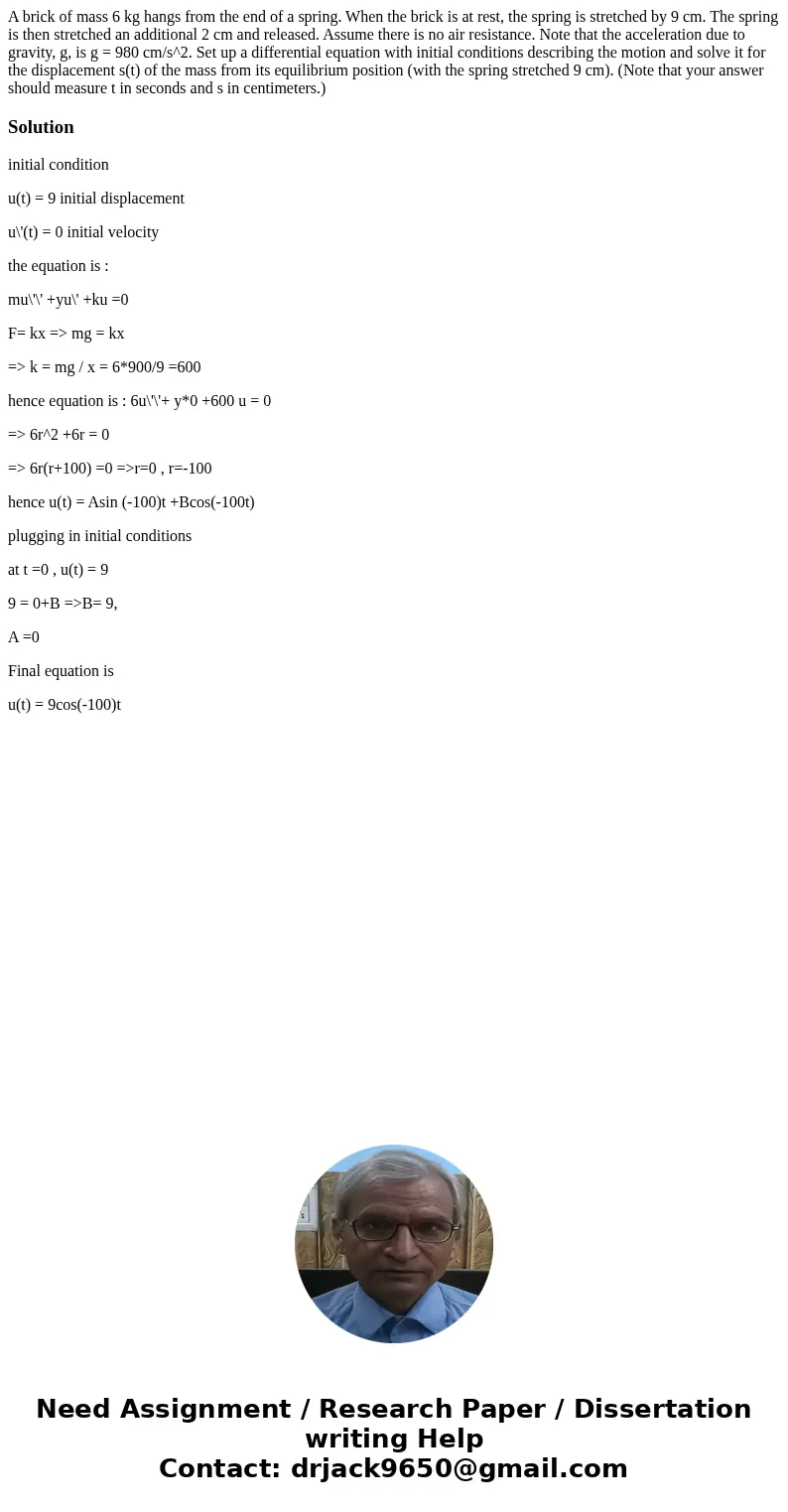A brick of mass 6 kg hangs from the end of a spring When the
A brick of mass 6 kg hangs from the end of a spring. When the brick is at rest, the spring is stretched by 9 cm. The spring is then stretched an additional 2 cm and released. Assume there is no air resistance. Note that the acceleration due to gravity, g, is g = 980 cm/s^2. Set up a differential equation with initial conditions describing the motion and solve it for the displacement s(t) of the mass from its equilibrium position (with the spring stretched 9 cm). (Note that your answer should measure t in seconds and s in centimeters.)
Solution
initial condition
u(t) = 9 initial displacement
u\'(t) = 0 initial velocity
the equation is :
mu\'\' +yu\' +ku =0
F= kx => mg = kx
=> k = mg / x = 6*900/9 =600
hence equation is : 6u\'\'+ y*0 +600 u = 0
=> 6r^2 +6r = 0
=> 6r(r+100) =0 =>r=0 , r=-100
hence u(t) = Asin (-100)t +Bcos(-100t)
plugging in initial conditions
at t =0 , u(t) = 9
9 = 0+B =>B= 9,
A =0
Final equation is
u(t) = 9cos(-100)t

 Homework Sourse
Homework Sourse